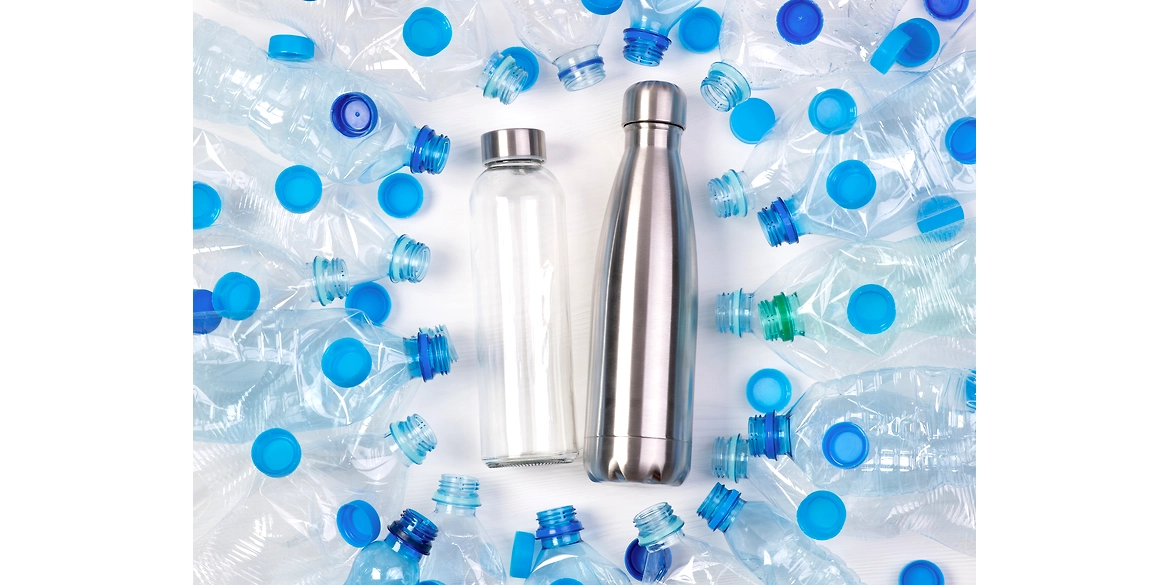Satyam Gifts is an online shop that specializes in selling a wide range of gift items for various occasions such as birthdays, holidays, weddings, and more. We offer a variety of products such as home decor, personal accessories, jewelry, and other u...
- customersales.satyam@gmail.com
- Maruti Bhavan , Prasi Panchayat Road, Andheri East, , Mumbai, Maharashtra, India. 400069
© 2020 Satyam Gifts. All Rights Reserved


The Battle of Hydration: Steel Bottles vs. Plastic Bottles
In a world where convenience often overshadows sustainability, the choices we make can significantly impact our environment and health. One such choice lies in the vessels we use to stay hydrated throughout the day. Steel bottles and plastic bottles are two popular options, each with its own set of benefits and drawbacks. Today, let's delve into the debate between steel bottles and plastic bottles, and explore why staying hydrated is crucial for our well-being.
Steel Contender: Durability and Sustainability
Steel bottles have gained popularity in recent years due to their durability and eco-friendliness. Made from stainless steel, these bottles are built to last, often enduring years of use without showing signs of wear and tear. Unlike their plastic counterparts, steel bottles don't retain odors or flavors, ensuring that your water always tastes fresh.
From an environmental perspective, steel bottles shine bright. They are reusable and recyclable, making them a sustainable choice for those looking to reduce their carbon footprint. By opting for a steel bottle, you're contributing to the reduction of single-use plastics, which pose a significant threat to our oceans and wildlife.
The Plastic Predicament: Convenience vs. Consequences
Plastic bottles, on the other hand, have long been the go-to option for many due to their convenience and affordability. However, their widespread use comes with a hefty environmental cost. Most plastic bottles are made from polyethylene terephthalate (PET), a material derived from crude oil. The production and disposal of these bottles contribute to pollution, greenhouse gas emissions, and the depletion of finite resources.
Furthermore, plastic bottles pose health risks, especially when exposed to heat or sunlight. Chemicals such as BPA (bisphenol A) and phthalates can leach from the plastic into the water, potentially causing adverse effects on our health over time. While efforts have been made to produce BPA-free plastics, the long-term impact of these alternatives is still uncertain.
Importance of Hydration: Nourishing Our Bodies 
Regardless of the container, one thing remains paramount: the importance of staying hydrated. Water is essential for our bodies to function optimally, playing a crucial role in various physiological processes, including temperature regulation, nutrient transportation, and waste removal. Dehydration can lead to a myriad of health issues, ranging from fatigue and headaches to more severe complications like kidney stones and urinary tract infections.
In today's fast-paced world, it's easy to overlook our hydration needs amidst busy schedules and endless distractions. However, making a conscious effort to drink an adequate amount of water each day can have profound effects on our well-being. Whether you prefer the sleekness of a steel bottle or the convenience of a plastic one, the key is to prioritize hydration and choose a vessel that aligns with your values and lifestyle.
Conclusion: Making Informed Choices for a Healthier Planet
In the battle of hydration vessels, the choice between steel bottles and plastic bottles extends far beyond personal preference. It's a decision that impacts not only our own health and convenience but also the health of our planet. By opting for reusable and sustainable alternatives like steel bottles, we can reduce waste, minimize environmental harm, and contribute to a brighter, healthier future for generations to come.
So, the next time you reach for a bottle to quench your thirst, consider the impact of your choice. Choose wisely, stay hydrated, and let's raise our bottles to a world where sustainability and well-being go hand in hand.




